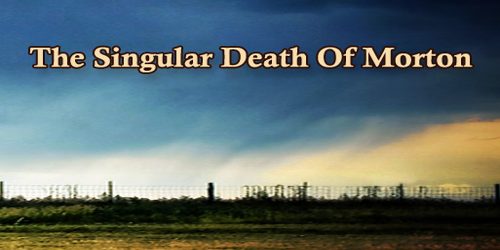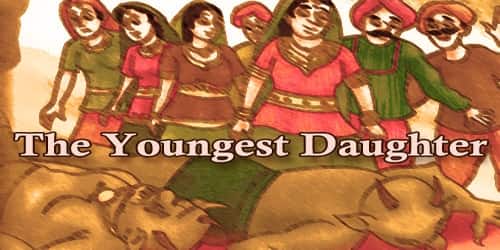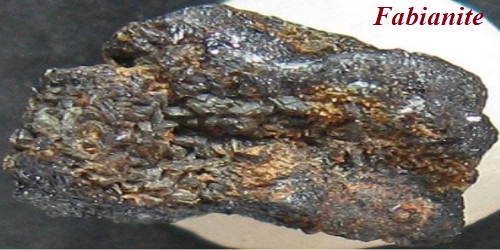Dusk was melting into darkness as the two men slowly made their way through the dense forest of spruce and fir that clothed the flanks of the mountain. They were weary with the long climb, for neither was in his first youth, and the July day had been a hot one. Their little inn lay further in the valley among the orchards that separated the forest from the vineyards.
Neither of them talked much. The big man led the way, carrying the knapsack, and his companion, older, shorter, evidently the more fatigued of the two, followed with small footsteps.
From time to time he stumbled among the loose rocks. An exceptionally observant mind would possibly have divined that his stumbling was not entirely due to fatigue but to absorption of spirit that made him careless how he walked.
‘All right behind?’ the big man would call from time to time, half glancing back.
‘Eh? What?’ the other would reply, startled out of a reverie.
‘Pace too fast?’
‘Not a bit. I’m coming.’ And once he added: ‘You might hurry on and see to supper, if you feel like it. I shan’t be long behind you.’
But his big friend did not adopt the suggestion. He kept the same distance between them. He called out the same question at intervals; Once or twice he stopped and looked back too.
In this way, they came at length to the skirts of the wood. A deep hush covered all the valley; the limestone ridges they had climbed gleamed down white and ghostly upon them from the fading sky. Midway in its journeys, the evening wind dropped suddenly to watch the beauty of the moonlight to hold the branches still so that the light might slip between and weave its silver pattern on the moss below.
And, as they stood a moment to take it in, a step sounded behind them on the soft pine-needles, and the older man, still a little in the rear, turned with a start as though he had been suddenly called by name.
‘There’s that girl again!’ he said, and his voice expressed a curious mingling of pleasure, surprise, and apprehension.
Into a patch of moonlight passed the figure of a young girl, looked at them as though about to stop yet thinking better of it, smiled softly, and moved on out of sight into the surrounding darkness. The moon just caught her eyes and teeth, so that they shone; the rest of her body stood in shadow; the effect was striking almost as though head and shoulders hung alone in mid-air, watching them with this shining smile, then fading away.
‘Come on, for heaven’s sake,’ the big man cried. There was impatience in his manner, not unkindness. The other lingered a moment, peering closely into the gloom where the girl had vanished. His friend repeated his injunction, and a moment later the two had emerged upon the high road with the village lights insight beyond, and the forest left behind them like a vast mantle that held the night within its folds.
For some minutes neither of them spoke; then the big man waited for his friend to draw up alongside.
‘About all this valley of the Jura,’ he said presently, ‘there seems to me something rather weird.’ He shifted the knapsack vigorously on his back. It was a gesture of unconscious protest.
‘Something uncanny,’ he added, as he set a good pace.
‘But extraordinarily beautiful’
‘It attracts you more than it does me, I think,’ was the short reply.
‘The picturesque superstitions still survive here,’ observed the older man. ‘They touch the imagination in spite of oneself.’
A pause followed during which the other tried to increase the pace. The subject evidently made him impatient for some reason.
‘Perhaps,’ he said presently. ‘Though I think myself it’s due to the curious loneliness of the place. I mean, we’re in the middle of tourist-Europe here, yet so utterly remote. It’s such a neglected little corner of the world. The contradiction bewilders. Then, being so near the frontier, too, with the clock changing an hour a mile from the village, makes one think of time as unreal and imaginary.’ He laughed. He produced several other reasons as well. His friend admitted their value and agreed half-heartedly. He still turned occasionally to look back. The mountain ridge where they had climbed was clearly visible in the moonlight.
‘Odd,’ he said, ‘but I don’t see that farmhouse where we got the milk anywhere. It ought to be easily visible from here.’
‘Hardly in this light. It was a queer place rather, I thought,’ he added. He did not deny the curiously suggestive atmosphere of the region; he merely wanted to find satisfactory explanations. ‘A case in point, I mean. I didn’t like it quite that farmhouse yet I’m hanged if I know why. It made me feel uncomfortable. That girl appeared so suddenly, although the place seemed deserted. And her silence was so odd. Why in the world couldn’t she answer a single question? I’m glad I didn’t take the milk. I spat it out. I’d like to know where she got it from, for there was no sign of a cow or a goat to be seen anywhere!’
‘I swallowed mine in spite of the taste,’ said the other, half smiling at his companion’s sudden volubility.
Very abruptly, then, the big man turned and faced his friend. Was it merely an effect of the moonlight, or had his skin really turned pale beneath the sunburn?
‘I say, old man,’ he said, his face grave and serious, ‘What do you think she was? What made her seem like that, and why the devil do you think she followed us?’
‘I think,’ was the slow reply, ‘it was me she was following.’
The words, and particularly the tone of conviction in which they were spoken, clearly were displeasing to the big man, who already regretted having spoken so frankly what was in his mind. With a companion so imaginative, so impressionable, so nervous, it had been foolish and unwise. He led the way home at a pace that made the other arrive five minutes in his rear, panting, limping and perspiring as if he had been running.
‘I’m rather for going on into Switzerland tomorrow, or the next day,’ he ventured that night in the darkness of their two-bedded room. ‘I think we ye had enough of this place. Eh? What do you think?’
But there was no answer from the bed across the room, for its occupant was sound asleep and snoring.
‘Dead tired, I suppose!’ he muttered to himself and then turned over to follow his friend’s example. But for a long time sleep refused him. Queer, unwelcome thoughts and feelings kept him awake of a kind he rarely knew and thoroughly disliked. It was rubbish, yet it made him uncomfortable so that his nerves tingled. He tossed about in the bed. ‘I’m overtired,’ he persuaded himself, ‘that’s all.’
The strange feelings that kept him thus awake were not easy to analyze, perhaps, but their origin was beyond all question: they grouped themselves about the picture of that deserted, tumble-down châlet on the mountain ridge where they had stopped for refreshment a few hours before. It was a farmhouse, dilapidated and dirty, and the name stood in big black letters against a blue background on the wall above the door: ‘La Chenille.’ Yet not a living soul was to be seen anywhere about it; the doors were fastened, windows shuttered; chimneys smokeless; dirt, neglect, and decay everywhere in evidence.
Then, suddenly, as they had turned to go, after much vain shouting and knocking at the door, a face appeared for an instant at a window, the shutter of which was half-open. His friend saw it first and called aloud. The face nodded in reply, and presently a young girl came round the corner of the house, apparently by a back door, and stood staring at them both from a little distance.
And from that very instant, so far as he could remember, these queer feelings had entered his heart fear, distrust, and misgiving. The thought of it now, as he lay in bed in the darkness, made his hair rise. There was something about that girl that struck cold into the soul. Yet she was a mere slip of a thing, very pretty, seductive even, with a certain serpent-like fascination about her eyes and movements; and although she only replied to their questions as to refreshment with a smile, uttering no single word, she managed to convey the impression that she was a managing little person who might make herself very disagreeable if she chose. In spite of her undeniable charm, there was about her an atmosphere of something sinister. He himself did most of the questioning, but it was his older friend who had the benefit of her smile. Her eyes hardly ever left his face, and once she had slipped quite close to him and touched his arm.
The strange part of it now seemed to him that he could not remember in the least how she was dressed, or what was the coloring of her eyes and hair. It was almost as though he had felt, rather than seen, her presence.
The milk she produced a jug and two wooden bowls after a brief disappearance round the corner of the house was well, it tasted so odd that he had been unable to swallow it, and had spat it out. His friend, on the other hand, savage with thirst, had drunk his bowl to the last drop too quickly to taste it even, and, while he drank, had kept his eyes fixed on those of the girl, who stood close in front of him.
And from that moment his friend had somehow changed. On the way down he said things that were unusual, talking chiefly about the ‘Chenille’, and the girl, and the delicious, delicate flavor of the milk, yet all phrased in such a way that it sounded singular, unfamiliar, unpleasant even.
Now that he tried to recall the sentences the actual words evaded him, but the memory of the uneasiness and apprehension they caused him to feel remained. And night ever italicizes such memories!
Then, to cap it all, the girl had followed them. It was wholly foolish and absurd to feel the things he did feel, yet there the feelings were, and what was the good of arguing? That girl frightened him; the change in his friend was in some way or other a danger signal. More than this he could not tell. An explanation might come later, but for the present, his chief desire was to get away from the place and to get his friend away, too.
And on this thought sleep overtook him heavily.
The windows were wide open; outside was a garden with a rather high enclosing wall and at the far end a gate that was kept locked because it led into private fields and so, by a back way, to the cemetery and the little church. When it was open the guests of the inn made use of it and got lost in the network of fields and vines, for there was no proper route that way to the road or the mountains. They usually ended up prematurely in the cemetery and got back to the village by passing through the church, which was always open; or by knocking at the kitchen doors of the other houses and explaining their position. Hence the gate was locked now to save trouble.
After several hours of hot, unrefreshing sleep the big man turned in his bed and woke. He tried to stretch, but couldn’t; then sat up panting with a sense of suffocation. And by the faint starlight of the summer night, he saw next that his friend was up and moving about the room.
Remembering that sometimes he walked in his sleep, he called to him gently:
‘Morton, old chap,’ he said in a low voice, with a touch of authority in it, ‘go back to bed!
You’ve walked enough for one day!’
And the figure, obeying as sleep-walkers often will, passed across the room and disappeared among the shadows over his bed. The other plunged and burrowed himself into a comfortable position again for sleep, but the heat of the room, the shortness of the bed, and this tiresome interruption of his slumbers made it difficult to lose consciousness. He forced his eyes to keep shut, and his body to cease from fidgeting, but there was something nibbling at his mind like a spirit mouse that never permitted him to cross the frontier into actual oblivion. He slept with one eye open, as the saying is. Odors of hay and flowers and baked ground stole in through the open window; with them, too, came from time to time sounds little sounds that disturbed him without being ever loud enough to claim definite attention.
Perhaps, after all, he did lose consciousness for a moment when, suddenly, a thought came with a sharp rush into his mind and galvanized him once more into utter wakefulness. It amazed him that he had not grasped it before. It was this: the figure he had seen was not the figure of his friend.
Alarm gripped him at once before he could think or argue, and a cold perspiration broke out all over his body. He fumbled for matches, couldn’t find them; then, remembering there was electric light, he scraped the wall with his fingers and turned on the little white switch. In the sudden glare that filled the room, he saw instantly that his friend’s bed was no longer occupied. And his mind, then acting instinctively, without process of conscious reasoning, flew like a flash to their walk of the day to the tumble-down. ‘Chenille,’ the glass of milk, the odd behavior of his friend, and to the girl.
At the same second, he noticed that the odour in the room which hitherto he had taken to be the composite odour of fields, flowers and night, was really something else: it was the odour of freshly turned earth. Immediately on the top of this discovery came another. Those slight sounds he had heard outside the window were not ordinary night-sounds, the murmur of wind and insects: they were footsteps moving softly, stealthily down the little paths of crushed granite.
He was dressed in wonderful short order, noticing as he did so that his friend’s night-garments lay upon the bed, and that he, too, had therefore dressed; further that the door had been unlocked and stood half an inch ajar. There was now no question that he had slept again: between the present and the moment when he had seen the figure there had been a considerable interval. A couple of minutes later he had made his way cautiously downstairs and was standing on the garden path in the moonlight. And as he stood there, his mind filled with the stories the proprietor had told a few days before of the superstitions that still lived in the popular imagination and haunted this little, remote pine-clad valley. The thought of that girl sickened him. The odour of newly-turned earth remained in his nostrils and made his gorge rise. Utterly and vigorously he rejected the monstrous fictions he had heard, yet for all that, could not prevent their touching his imagination as he stood there in the early hours of the morning, along with night and silence. The spell was undeniable; only a mind without sensibility could have ignored it.
He searched the little garden from end to end. Empty! Opposite the high gate, he stopped, peering through the iron bars, wet with dew to his hands. Far across the intervening fields, he fancied something moved. A second later he was sure of it. Something down there to the right beyond the trees was astir. It was in the cemetery.
And this definite discovery sent a shudder of terror and disgust through him from head to foot.
He framed the name of his friend with his lips, yet the sound did not come forth. Some deeper instinct warned him to hold it back. Instead, after incredible efforts, he climbed that Iron Gate and dropped down into the soaking grass upon the other side. Then, taking advantage of all the cover he could find, he ran, swiftly and stealthily, towards the cemetery. On the way, without quite knowing why he did so, he picked up a heavy stick; and a moment later he stood beside the low wall that separated the fields from the churchyard stood and stared.
There, beside the tombstones, with their hideous metal wreaths and crowns of faded flowers, he made out the figure of his friend; he was stooping, crouched down upon the ground; behind him rose a couple of bushy yew trees, against the dark of which his form was easily visible. He was not alone; in front of him, bending close over him it seemed, was another figure a slight, shadowy, slim figure.
This time the big man found his voice and called aloud:
‘Morton, Morton!’ he cried. ‘What, in the name of heaven, are you doing? What’s the matter?’
And the instant his deep voice broke the stillness of the night with its clamor, the little figure, half hiding his friend, turned about and faced him. He saw a white face with shining eyes and teeth as the form rose; the moonlight painted it with its own strange pallor; it was weird, unreal, and horrible; and across the mouth, downwards from the lips to the chin, ran a deep stain of crimson.
The next moment the figure slid with a queer, gliding motion towards the trees, and disappeared among the yews and tombstones in the direction of the church. The heavy stick, hurled whirling after it, fell harmlessly halfway, knocking a metal cross from its perch upon an upright grave; and the man who had thrown it raced full speed towards the huddled up figure of his friend, hardly noticing the thin, wailing cry that rose trembling through the night air from the vanished form. Nor did he notice more particularly that several of the graves, newly made, showed signs of recent disturbance, and that the odour of turned earth he had noticed in the room grew stronger. All his attention was concentrated upon the figure at his feet.
‘Morton, man, get up! Wake for God’s sake! You’ve been walking in’
Then the words died upon his lips. The unnatural attitude of his friend’s shoulders, and the way the head dropped back to show the neck, struck him like a blow in the face. There was no sign of movement. He lifted the body up and carried it, all limp and unresisting, byways he never remembered afterward, back to the inn.
It was all a dreadful nightmare a nightmare that carried over its ghastly horror into waking life. He knew that the proprietor and his wife moved busily to and fro about the bed, and that in due course the village doctor was upon the scene, and that he was giving a muddled and feverish description of all he knew, telling how his friend was a confirmed sleep-walker and all the rest.
But he did not realize the truth until he saw the face of the doctor as he straightened up from the long examination.
‘Will you wake him?’ he heard himself asking, ‘or let him sleep it out till morning?’ And the doctor’s expression, even before the reply came to confirm it, told him the truth. ‘Ah, monsieur, your friend will not ever wake again, I fear! It is the heart, you see; hélas, it is a sudden failure of the heart!’ The final scenes in the little tragedy which thus brought his holiday to so abrupt and terrible a close need no description, being in no way essential to this strange story. There were one or two curious details, however, that came to light afterward. One was, that for some weeks before there had been signs of disturbance among newly-made graves in the cemetery, which the authorities had been trying to trace to the nightly wanderings of the village madman in vain; and another, that the morning after the death a trail of blood had been found across the church floor, as though someone had passed through from the back entrance to the front. A special service was held that very week to cleanse the holy building from the evil of that stain; for the villagers, deep in their superstitions, declared that nothing human had left that trail; nothing could have made those marks but a vampire disturbed at midnight in its awful occupation among the dead.
Apart from such idle rumors, however, the bereaved carried with him to this day certain other remarkable details which cannot be so easily dismissed. For he had a brief conversation with the doctor, it appears, that impressed him profoundly. And the doctor, an intelligent man, prosaic as granite into the bargain, had questioned him rather closely as to the recent life and habits of his dead friend. The account of their climb to the ‘Chenille’ he heard with amazement he could not conceal.
‘But no such chalet exists,’ he said. There is no ‘Chenille’. A long time ago, fifty years or more, there was such a place, but it was destroyed by the authorities on account of the evil reputation of the people who lived there. They burnt it. Nothing remains today but a few bits of broken wall and foundation.
‘Evil reputation?’
The doctor shrugged his shoulders ‘Travelers, even peasants, disappeared,’ he said. ‘An old woman lived there with her daughter, and poisoned milk was supposed to be used. But the neighborhood accused them of worse than ordinary murder’
‘In what way?’
‘Said the girl was a vampire,’ answered the doctor shortly.
And, after a moment’s hesitation, he added, turning his face away as he spoke:
‘It was a curious thing, though, that tiny hole in your friend’s throat, small as a pin-prick, yet so deep. And the heart did I tell you? Was almost completely drained of blood.’
















